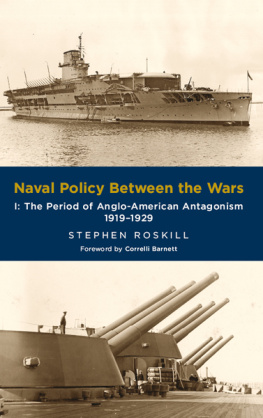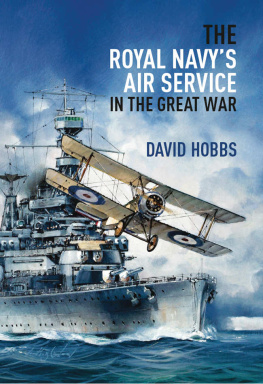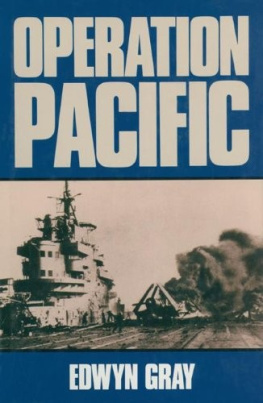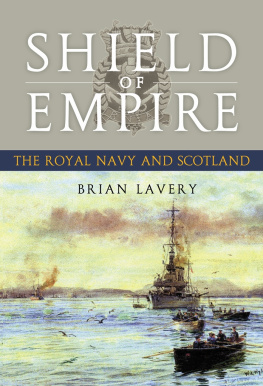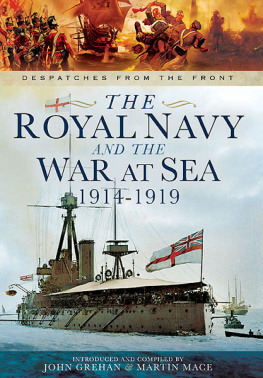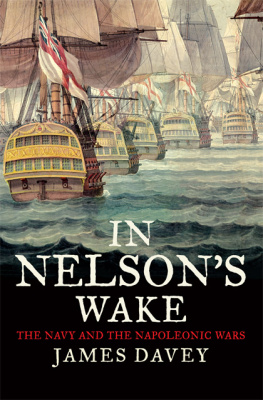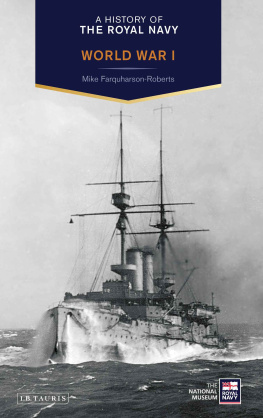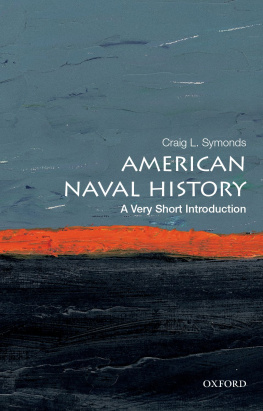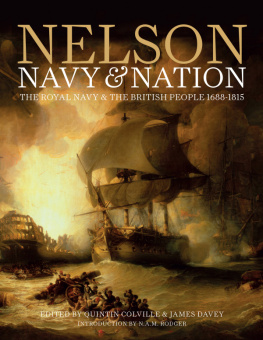ROUTLEDGE LIBRARY EDITIONS: MILITARY AND NAVAL HISTORY
Volume 18
A SHORT HISTORY OF THE ROYAL NAVY
A SHORT HISTORY OF THE ROYAL NAVY
1805 to 1918
CHRISTOPHER LLOYD
First published in 1942
This edition first published in 2016
by Routledge
2 Park Square, Milton Park, Abingdon, Oxon OX14 4RN
and by Routledge
711 Third Avenue, New York, NY 10017
Routledge is an imprint of the Taylor & Francis Group, an informa business
1942 Christopher Lloyd
All rights reserved. No part of this book may be reprinted or reproduced or utilised in any form or by any electronic, mechanical, or other means, now known or hereafter invented, including photocopying and recording, or in any information storage or retrieval system, without permission in writing from the publishers.
Trademark notice: Product or corporate names may be trademarks or registered trademarks, and are used only for identification and explanation without intent to infringe.
British Library Cataloguing in Publication Data
A catalogue record for this book is available from the British Library
ISBN: 978-1-138-90784-3 (Set)
ISBN: 978-1-315-67905-1 (Set) (ebk)
ISBN: 978-1-138-93128-2 (Volume 18) (hbk)
ISBN: 978-1-315-67981-5 (Volume 18) (ebk)
Publishers Note
The publisher has gone to great lengths to ensure the quality of this reprint but points out that some imperfections in the original copies may be apparent.
Disclaimer
The publisher has made every effort to trace copyright holders and would welcome correspondence from those they have been unable to trace.
A SHORT HISTORY OF THE ROYAL NAVY
1805 TO 1918
by
CHRISTOPHER LLOYD
Author of Captain Marryat and the Old Navy, etc.
THIRD EDITION
First published .. May 7th, 1942
Second Edition .. January 1943
Third Edition .. 1946
CATALOGUE NO. 3791/U
PRINTED IN GREAT BRITAIN
I WILL make no other introduction to the following discourse than that as the importance of our being strong at sea was ever very great, so in our present circumstances it is grown to be much greater because, as formerly our force of shipping contributed greatly to our trade and safety, so now it is become indispensably necessary to our very being. To the question, What shall we do to be saved in this world? there is no other answer but this: Look to your moat. The first article in an Englishmans political creed must be, That he believeth in the sea (Halifax, Rough Draught of a New Model at Sea. 1694).
Apart from a vague knowledge of a disconnected series of exciting episodes, we are, as a nation, singularly ignorant of the facts of naval history. In spite of numberless books devoted to particular aspects of the subject, there exists no short history of the Navy covering the vital period in which occurred the defeat of Napoleon, the expansion of the Empire, the transition from sail to steam, and the rise and fall of the first German menace. The aim of this book is to provide such a history from after the battle of Trafalgar to the end of the war of 1914 to 1918. My object has been to view both actors and actions in the framework provided by strategic considerations, whether political, military, or economic, and to describe the history of the Service in relation to the history of the nation during the past century.
I am greatly indebted to E. A. Hughes for the care with which he has revised my manuscript, though I remain responsible for any errors in fact or view which may be detected.
ROYAL NAVAL COLLEGE,
DARTMOUTH
November 1941
THE WEAPON which ultimately enabled Britain to defeat Napoleon was the command of the sea which had been won in the naval war culminating in the battle of Trafalgar. Thereafter the weapon operated in three distinct ways. Firstly, the blockade of the enemys fleets, so that they could never again challenge Britains supremacy at sea, though the war lasted ten years after the death of Nelson, and though Napoleon was able to build up an even larger navy than that which he possessed in 1805. Secondly, the economic blockade of Napoleons continental empire. Lastly, our command of the sea enabled us to maintain an expeditionary force in Spain. If any one, said Wellington in 1813, wishes to know the history of this war, I will tell them that it is our maritime superiority gives me the power of maintaining my army, while the enemy are unable to do so. History affords no more successful example than this of the use of sea-power to support an eccentric, harassing force which diverts important elements of the enemys power. When Spain rose against the French in 1808 the Peninsular War assumed the character of the first of the Wars of Liberation, the fundamental cause of which was the economic tyranny Napoleon sought to impose upon the whole of the continent in the course of his commercial war with Great Britain.
Trafalgar did not, as is commonly supposed, save us from invasion in 1805. The preparations for war in Austria did that. But it saved us from the recurrence of such a threat, and it stifled any hopes Napoleon may have entertained of world dominion. It was the less spectacular, but far more important, activities of the blockading fleets which brought about his downfall. Two aspects of the working of the blockade may be distinguished: the military aspect, in which the aim was to confine the enemys fleets in their own harbours; and the economic aspect, in which Britain not merely destroyed French trade, but maintained her own commerce in spite of everything the Emperor could do.
Let us consider first how the blockade of the enemys fleets was carried out before and after the battle of Trafalgar. At the beginning of the war against Revolutionary France the old system of Open Blockade was in operation. Under this system the watch of the Channel Fleet on Brest was based on Portsmouth, from which port cruises were undertaken in the hope of making contact with the enemy. Thus the battle of the Glorious First of June (1794) was fought because both fleets were out on convoy duty and Howe succeeded in intercepting the French before they could regain their harbour. A force of frigates was normally maintained to watch the entrances to Brest and report if the enemy came out, but as there was seldom a clearly defined rendezvous it often happened that the main fleet could not be found in an emergency. Given an easterly wind, it was perfectly possible for the French to slip out unmolested, as it did in the winter of 1796 when an expedition under General Hoche was prevented from making a landing at Bantry Bay only by the weather and the indecision of the commanders. Similarly, in 1799 Admiral Bruix was able to sail to Toulon and back without interruption because the blockade was not strict enough.


